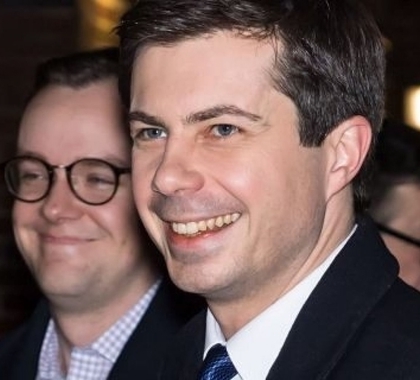“First comes freedom,” said Pete Buttigieg while announcing his candidacy for the Democratic nomination for president on April 14.
Putting freedom first among his principles — freedom, security, democracy — was a promising start by the South Bend, Indiana mayor for voters like me, to whom the preservation of freedom is the most important political value and the first duty of government. However, Buttigieg then went on to show he is utterly confused — or worse, deliberately misleading the public — about the meaning of “freedom.”
“Our conservative friends care about freedom, but they only make it part of the way,” said Buttigieg. “They only see freedom from — freedom from taxes, freedom from regulations — as though government were the only thing that can make somebody unfree. But it’s not true. Your neighbor can make you unfree. Your cable company can make you unfree.”
Buttigieg failed to explain how “your cable company can make you unfree.” However, he did say, “Health care is freedom. Because you’re not free if you can’t start a small business when leaving your job means losing your health care. Consumer protection is freedom because you’re not free if you can’t sue your credit card compan. … The chance to live a life of your choosing … that is freedom in its richest sense.”
Buttigieg’s remarks confuse freedom, the absence of coercive restraint, which is a political value, with freedom as the power to do or to have whatever one desires. The first kind of freedom is sometimes called “negative freedom,” because it prevents your neighbor or government from forcing you to do something against your will. The second kind of freedom, sometimes called “positive freedom,” is human action, which is limited by individual ability and circumstances.
When government attempts to secure positive freedom, such as taxing some people to provide health care, education, or housing for others, it does so by redistributing freedom from some people to others. In the process of securing positive freedoms for some, government employs tyranny and shrinks the negative freedom of others — and possibly everyone in society.
“I like talking about systems and structures, philosophies and theories,” said Buttigieg.
Of course, it is good that he is interested in exploring ideas to improve society. Hopefully he will explore notions outside of the progressive agenda, which currently centers upon U.S. Rep. Alexandria Ocasio-Cortez’s, D-N.Y., Green New Deal. However, if Buttigieg continues to limit his thinking to leftist ideology, his policy prescriptions will be severely deficient and downright dangerous.
A more encompassing view of freedom can be found in The Human Freedom Index (HFI), authored by Ian Vásquez and Tanja Porčnik. The HFI is an expansion of the Economic Freedom of the World report. The economic freedom report uses indicators such as tax rates, regulations, and intellectual property protections to determine what makes freer economies more prosperous than others. The HFI analyzes data to rank countries on a freedom spectrum.
“Your freedom depends on a lot more than just the size of your government,” said Buttigieg. The HFI authors likely agree. In recent years, they have increased the measures used in their report to include personal and civil freedoms.
Some of these personal freedoms are well-known to Americans, such as freedom of religion, association, and assembly. Others are less well-known, such as freedom from female genital mutilation, forced marriage, and slavery.
The 2018 Human Freedom Index ranks 162 countries. New Zealand was the freest country, while the United States ranked 17th. The top quarter of free countries have an average per capita income of $39,249, whereas incomes in the least-free quarter average $12,026.
The freest countries have governments founded on classical liberal, also called “conservative,” principles. The least free countries include all of the avowedly socialist countries.
Presidential candidate Buttigieg should take all of this into account as he determines his meaning of “freedom.” He might want to begin by considering the words of President Gerald R. Ford: “A government big enough to give you everything you want is a government big enough to take from you everything you have.”
[Originally Published at the Detroit News]




